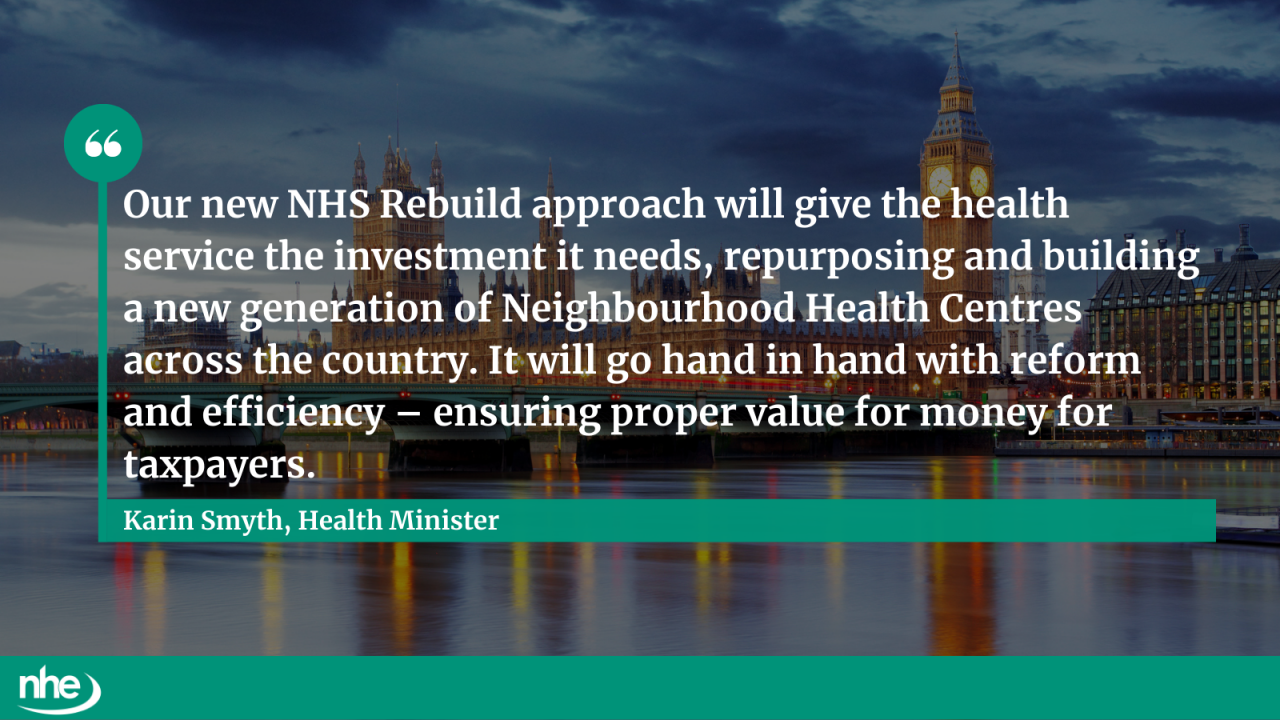The Chancellor has confirmed a major investment in healthcare ahead of this week’s Budget, doubling down on the government’s commitment to cut NHS waiting times and deliver care closer to home.
The Budget will set out plans for 250 new Neighbourhood Health Centres – local ‘one-stop shops’ bringing GPs, nurses, dentists, and pharmacists under one roof to meet community needs. The first centres will open in the most deprived areas, forming part of a new Neighbourhood Health Service designed to provide end-to-end care and tailored support.
These centres will move more outpatient care out of hospitals, ending the postcode lottery of healthcare access and ensuring patients receive treatment minutes from home rather than travelling long distances.
Neighbourhood Health Services will initially focus on improving access to general practice and supporting people with complex needs and long-term conditions such as diabetes and heart failure. Construction will be delivered through a public-private partnership, repurposing existing estate and building new facilities.
Alongside this, the Chancellor will announce £300 million of new capital investment in NHS technology, including:
- Digital tools to automate admin tasks and speed up access to patient information
- Improved staff communication and care coordination
- Productivity enhancements to free up time for nurses, doctors, and physios to focus on patient care
Chancellor Rachel Reeves commented:
“At the Budget I’ll set out how we’ll deliver on the country’s priorities to cut NHS waiting times, cut debt and cut the cost of living.
“We’re driving down waiting lists by bringing healthcare to patients’ doorsteps and turbocharging NHS productivity with cutting-edge technology.
“Our record investment, combined with ruthless efficiency and reform, will deliver the better care and better outcomes our NHS patients deserve.”
Hospital productivity is already up 2.4% this year, meaning patients are being treated faster. Achieving 2% annual productivity growth could unlock £17 billion in savings over three years, reinvested into frontline care.
The government has also announced sweeping NHS reforms, including cutting 18,000 posts and merging NHS England back into the Department of Health to focus investment on patient care – saving £1bn annually, enough to fund 115,000 extra hip and knee operations.
Progress so far includes:
- 200,000 reductions in waiting lists – the biggest drop in 15 years
- 5.2 million extra appointments
- 135,000 cancer diagnoses within the 28-day target
The Budget builds on this momentum, ensuring an NHS fit for the future, organised around patients’ needs rather than the other way around.
Karin Smyth, Health Minister, also said:
“Neighbourhood Health Centres fundamentally reimagine how the NHS works - bringing care closer to home and making sure the NHS is organised around patients’ needs, not the other way round.
“The Chancellor is rightly boosting investment in the NHS after we inherited a health service on its knees – with Lord Darzi’s investigation uncovering a £40 billion black hole. But funding will only get us so far. We need to use every measure available to us, which is why we’re leveraging in private investment to construct some of these centres, making the most of all expertise and every tool at our disposal.
“Our new NHS Rebuild approach will give the health service the investment it needs, repurposing and building a new generation of Neighbourhood Health Centres across the country. It will go hand in hand with reform and efficiency – ensuring proper value for money for taxpayers.”

Image credit: iStock



















